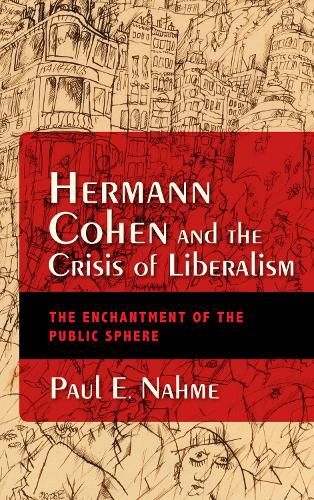Readings Newsletter
Become a Readings Member to make your shopping experience even easier.
Sign in or sign up for free!
You’re not far away from qualifying for FREE standard shipping within Australia
You’ve qualified for FREE standard shipping within Australia
The cart is loading…






Hermann Cohen (1842-1918) is often held to be one of the most important Jewish philosophers of the nineteenth century. Paul E. Nahme, in this new consideration of Cohen, liberalism, and religion, emphasizes the idea of enchantment, or the faith in and commitment to ideas, reason, and critique-the animating spirits that move society forward. Nahme views Cohen through the lenses of the crises of Imperial Germany-the rise of antisemitism, nationalism, and secularization-to come to a greater understanding of liberalism, its Protestant and Jewish roots, and the spirits of modernity and tradition that form its foundation. Nahme’s philosophical and historical retelling of the story of Cohen and his spiritual investment in liberal theology present a strong argument for religious pluralism and public reason in a world rife with populism, identity politics, and conspiracy theories.
$9.00 standard shipping within Australia
FREE standard shipping within Australia for orders over $100.00
Express & International shipping calculated at checkout
Hermann Cohen (1842-1918) is often held to be one of the most important Jewish philosophers of the nineteenth century. Paul E. Nahme, in this new consideration of Cohen, liberalism, and religion, emphasizes the idea of enchantment, or the faith in and commitment to ideas, reason, and critique-the animating spirits that move society forward. Nahme views Cohen through the lenses of the crises of Imperial Germany-the rise of antisemitism, nationalism, and secularization-to come to a greater understanding of liberalism, its Protestant and Jewish roots, and the spirits of modernity and tradition that form its foundation. Nahme’s philosophical and historical retelling of the story of Cohen and his spiritual investment in liberal theology present a strong argument for religious pluralism and public reason in a world rife with populism, identity politics, and conspiracy theories.